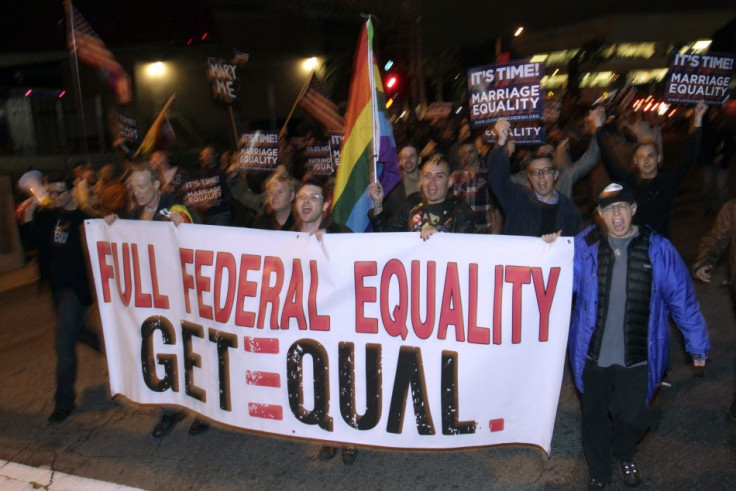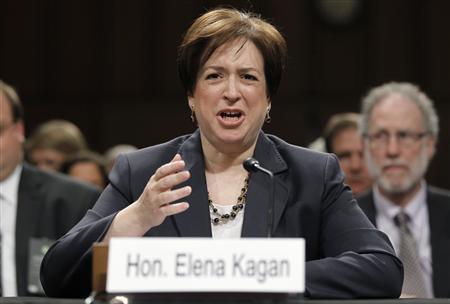US Supreme Court divided on legalisation of gay marriage, decision to be delivered by June

US Supreme Court judges were divided about the legalisation of same-sex marriage on 28 April, with Justice Anthony Kennedy appearing to lean towards legalising gay marriage nationwide. A final decision on the issue is due by the end of June, Reuters reported.
The nine judges questioned attorneys on both sides of the issue during two and a half hours of arguments. According to Reuters, the judges appeared to be split along ideological lines as they have in the past.
Kennedy, a conservative judge who has supported gay rights in the past, questioned both sides intensively but also noted the virtues of same-sex couples. He often casts the deciding vote in close cases, Reuters noted.
The Supreme Court judge reportedly challenged the states' assertion that same-sex couples do not hold the same bonds with their children as opposite-sex couples. "That was very interesting, but it's just a wrong premise," Kennedy said to lawyer John Brusch. He added that Brusch's argument "assumes that same-sex couples cannot have the more noble purpose" that heterosexual couples show when they marry.
According to Reuters, the first part of the arguments discussed whether guarantees of due process and equal protection in the Constitution means that states must permit same-sex marriages. The second part focused on whether states must recognise gay marriages performed in other states.
Despite appearing to side along with those fighting for same-sex marriage legalisation, Kennedy seemed conflicted about changing the traditional view of marriages. "This definition has been with us for millennia, and I think it's very difficult for this court to say, oh well, we know better," he said.

Chief Justice John Roberts also seemed apprehensive about letting the court decide on same-sex marriage. "Closing of debate can close minds," Roberts said. Reuters reported that Roberts appeared to be against requiring states to recognise same-sex marriages performed by other states.
Meanwhile, liberal Justice Elena Kagan argued that if same-sex couples were allowed to married, more children would be adopted and given stable living environments. "More adopted children and more marital households, whether same sex or other sex, seems to be a good thing," Kagan said.
Lawyer Mary Bonauto, who worked in favour of legalisation, argued that the idea that states should use a "wait and see" approach to same-sex marriage was similar to the approach used by states who defended bans on interracial marriage in the 1960, according to US News & World Report.
The landmark case stems from same-sex marriage bans in Kentucky, Michigan, Ohio and Tennessee.
© Copyright IBTimes 2025. All rights reserved.






















